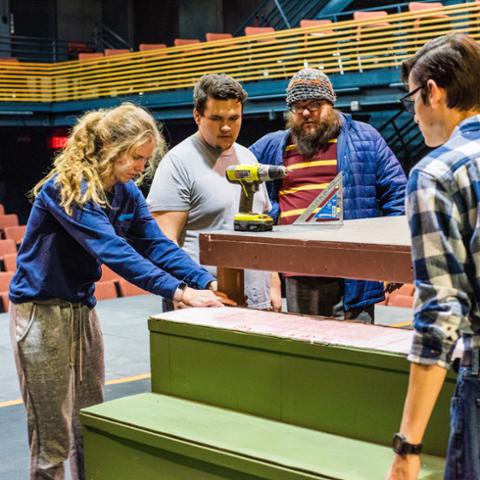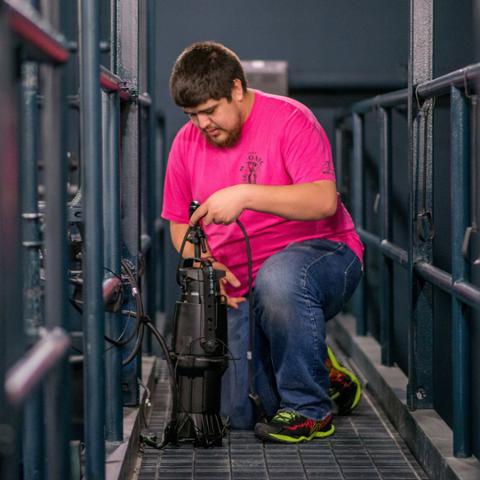Theatre
Major in Communication with an Emphasis in TheatreGain experience across the entire discipline of theatre, including acting, technical production, design, stage management, and directing.
Pittsburg State's theatre program produces a variety of theatre productions each academic year, including mainstage performances and student-directed works.We are dedicated to educating and inspiring the next generation of theatre makers.

The strongest ensembles of theatre artists are comprised of people who are collaborative, creative, and competent.

Creating high quality productions, providing a variety of artistic opportunities, and training to be theatre professionals prepares students for their future careers.

Academic instruction, hands-on practical training, and experiential learning are offered as essential foundations of storytelling and artistic expression.
Train in State-of-the-Art Production Facilities
The Bicknell Family Center for the Arts is the region's premier destination for the fine and performing arts. Our facility features the 1,000-seat Linda & Lee Scott Performance Hall, a full theatrical stage, the 280-seat Dotty and Bill Miller Theater, and the 2,900 square-foot Rehearsal Hall.
Courses within the Theatre Emphasis Track
- Performance Studies: Explore the origins of human performance, the forms of artistic and social performance, and performance practitioners and genres.
- Acting: Learn the fundamentals of acting, including concentration, motivation, character development, and vocal and physical technique.
- Stagecraft: Investigate an introduction to design and construction skills for the theatre, including scenic construction and painting, and lighting and sound technology.
- Theatre History: Examine dramatic texts, performance styles, audience reception, theatre architecture, and the societal and cultural impact during eras of theatre history.
- Technical Production: Gain hands-on experience through an introduction to theatre design skills and construction techniques that focuses on props, costumes, makeup, and special effects.
- Stage Direction: Learn the fundamentals of stage direction with an emphasis on script analysis, proper blocking, and preparation of the script for performance.
- Drama Studies: Analyze dramatic literature through an examination of various playwrights, cultures, and genres.
- Advanced Performance: Deepen theatre performance skills with an emphasis on acting or directing.
- Design for Performance: Focus on advanced theoretical and practical experience in scenic, lighting, properties, or costume design.
- Project in Theatre: Apply advanced skills through practical theatrical experience in a selected area of theatre.
Career Opportunities
- Actor
- Director
- Designer
- Educator
- Stage Manager
- Choreographer
- Dramaturg
- Education Director
- Technical Director
- Hotel/Restaurant Manager
- Events Planning
- Facilities Management
Additional information
Communication - Theatre Degree Map download
Catalog – see catalog for the School of Humanities and Fine and Performing Arts